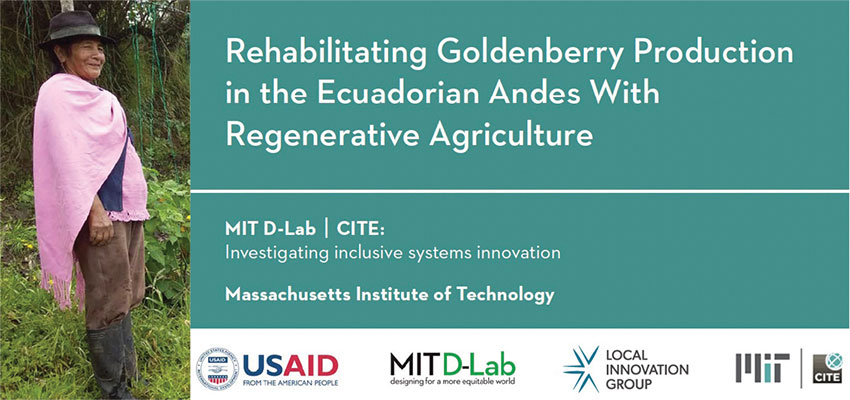
Rehabilitating Goldenberry Production in the Ecuadorian Andes with Regenerative Agriculture
Summary
This case study describes an inclusive local innovation process involving smallholder farming communities in the Ecuadorian Andes engaged in producing organic goldenberries for export. In early 2020, as the global COVID-19 pandemic started to supply chains, health, and livelihoods around the world, these communities found themselves facing a novel plant disease known locally as mancha morada. This disease, which was unknown to these communities at the time and had no effective treatment approach, swept through their goldenberry fields, killing their plants and leaving them without a primary source of income.
The case study describes a co-innovation process led by an Ecuadorian nonprofit organization, Aliados, through which these communities, working in collaboration with Aliados technicians and other local stakeholders, developed in a fairly short period of time a successful approach to preventing and controlling mancha morada using principles and practices from regenerative agriculture. Drawing on original primary research, the case study describes the innovation process in depth, following the chronology of the case as described by research participants to identify key turning points, factors contributing to the success of this process, and the results these farming communities have been able to jointly achieve. These results include the spread of regenerative farming practices, improved soil fertility, the diversification of agricultural production in these communities, and the strengthening of farmers’ capacity to be proactive and to innovate.
Contact
Elizabeth Hoffecker, Research Scientist, Local Innovation Group Lead

